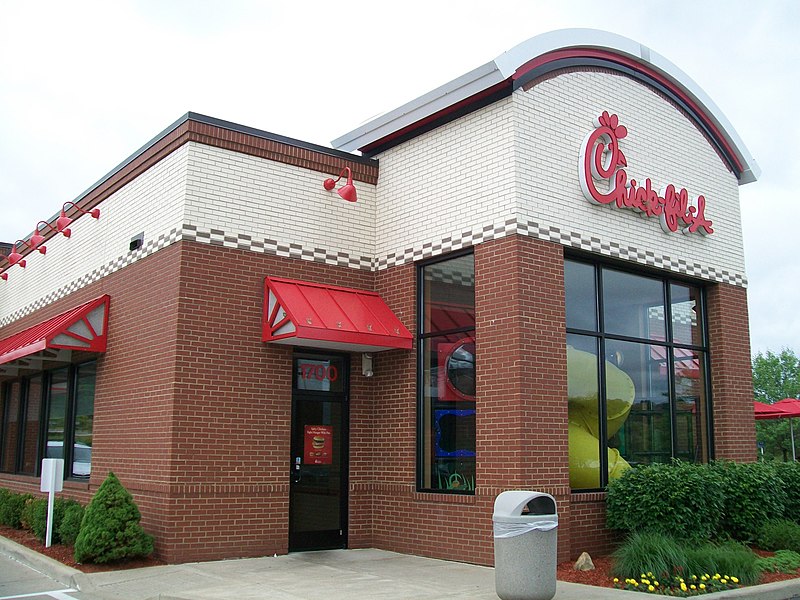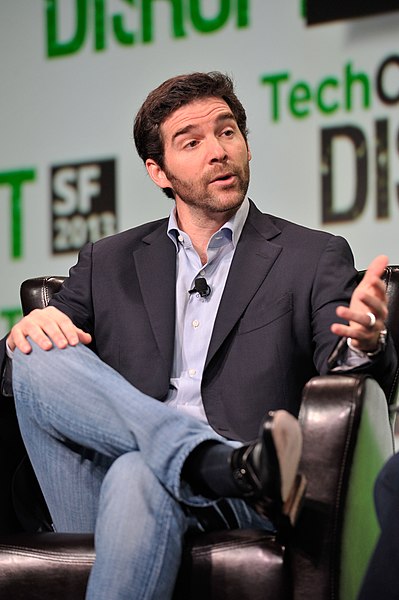Leading the Chick-fil-A Way: Unveiling the Secrets of Exceptional Leadership

The Journey of Leadership Excellence: Unraveling the Stories and Lessons of Chick-fil-A
In the competitive landscape of the fast-food industry, where giants reign and trends come and go, there is a remarkable success story that stands out from the crowd: Chick-fil-A. From its humble beginnings as a small diner in the Atlanta suburb of Hapeville in 1946, Chick-fil-A has grown into a fast-food powerhouse, consistently surpassing its competitors in customer satisfaction, sales growth, and profitability. However, behind the scenes of this phenomenal success lies a deeper narrative of visionary leadership and unwavering commitment to principles that have shaped Chick-fil-A’s journey.
Leadership is the lifeblood of any organization, and Chick-fil-A stands as a shining example of how effective leadership can drive unprecedented success. For over 40 years, the men and women at Chick-fil-A have been refining their leadership approach, building a culture centered around core values, fostering personal and professional growth, and instilling a sense of purpose in their employees. These leadership lessons and stories of Chick-fil-A provide invaluable insights that go far beyond the fast-food industry and are applicable to leaders in any sector.
At the core of Chick-fil-A’s leadership philosophy is a steadfast commitment to their core values and principles. These values, including “customer first,” “integrity,” “excellence,” and “stewardship,” serve as a compass guiding every decision, action, and interaction within the organization. Through a meticulous selection process, Chick-fil-A ensures that leaders at all levels embody these values, fostering a culture of trust, accountability, and high ethical standards.
Central to Chick-fil-A’s leadership ethos is the concept of servant leadership. It is a philosophy that places the needs of others before self, empowering leaders to serve their teams, customers, and communities with humility and compassion. By nurturing a servant mindset, Chick-fil-A’s leaders inspire their employees to deliver exceptional customer service, leading to an unparalleled customer experience and fierce customer loyalty.
Chick-fil-A’s commitment to developing leaders from within has been instrumental in their sustained success. Rather than relying on external talent, Chick-fil-A focuses on identifying and nurturing leadership potential within their own ranks. Through comprehensive training programs, mentorship, and opportunities for growth and advancement, Chick-fil-A invests in their employees’ development, creating a talent pipeline that ensures continuity and consistent leadership excellence.
Moreover, Chick-fil-A’s emphasis on a learning culture enables leaders and employees alike to constantly acquire new skills and knowledge. Whether it’s through ongoing education programs, leadership development initiatives, or cross-functional exposure, Chick-fil-A encourages a growth mindset that supports innovation and adaptability in the face of change.
Beyond its operational prowess, Chick-fil-A is renowned for its exceptional customer service and relationship building. By instilling a customer-centric culture, Chick-fil-A leaders empower their employees to go above and beyond to create raving fans out of their customers. Genuine care, personalized interactions, and attention to detail are the hallmarks of their customer service approach, leaving an indelible mark on those who experience it.
But Chick-fil-A’s leadership influence extends far beyond the realm of business. Ethical leadership and social responsibility are deeply ingrained in the organization’s DNA. Chick-fil-A leaders exemplify integrity, making ethical decisions even in the face of challenges. Additionally, the company actively engages in philanthropic endeavors and community involvement, using their success as a platform for positive social impact.
Throughout its storied history, Chick-fil-A has faced its fair share of challenges and disruptions. From rapid expansion to shifting consumer preferences, the company has had to adapt and innovate to stay ahead. However, what sets Chick-fil-A apart is its unwavering commitment to its core values and principles, which have provided the compass to navigate through turbulent times while staying true to its purpose and vision.
In this comprehensive article, we will delve into the leadership lessons and stories of Chick-fil-A, uncovering the key principles that have propelled them to unparalleled heights of success. From their foundational leadership principles to their focus on talent development, exceptional customer service, ethical leadership, and adaptability, we will explore the leadership practices that have made Chick-fil-A an enduring force in the fast-food industry.
As we examine the leadership journey of Chick-fil-A, we invite you to reflect on how these lessons can be applied in your own leadership endeavors. Whether you lead a small team, manage a large organization, or aspire to make a difference in your community, the insights from Chick-fil-A’s leadership experiences are sure to inspire and guide you on your own path to success. Let us embark on this enlightening exploration of leadership excellence and discover the timeless wisdom that lies within the stories of Chick-fil-A.
Foundational Leadership Principles at Chick-fil-A
Commitment to Core Values and Principles
At the heart of Chick-fil-A’s extraordinary success lies an unwavering commitment to their core values and principles. These values serve as the bedrock of the organization, guiding every decision, action, and interaction. From the early days of its inception, Chick-fil-A’s founder, Truett Cathy, instilled a strong sense of purpose and a set of core values that continue to shape the company’s culture.
Chick-fil-A’s core values include “customer first,” emphasizing the importance of prioritizing customer satisfaction above all else. By consistently putting customers at the forefront, Chick-fil-A has been able to create a loyal and dedicated customer base. This customer-centric approach permeates throughout the organization, influencing the behavior and mindset of every employee.
Integrity is another core value that Chick-fil-A holds in high regard. Leaders at Chick-fil-A understand the importance of doing what is right, even when faced with difficult decisions. They maintain a culture of transparency, honesty, and ethical conduct, which fosters trust among employees, customers, and stakeholders. This commitment to integrity has not only helped Chick-fil-A build a strong reputation but has also served as a guiding principle in establishing long-lasting relationships with their customers and communities.
Excellence is deeply ingrained in the fabric of Chick-fil-A’s leadership approach. Leaders strive for excellence in every aspect of their operations, from food quality and service to employee training and development. By setting high standards and holding themselves accountable to these standards, Chick-fil-A consistently delivers exceptional experiences to their customers. This relentless pursuit of excellence has enabled the company to differentiate itself in the highly competitive fast-food industry.
Stewardship is a value that underscores Chick-fil-A’s responsibility to make a positive impact on the world around them. They recognize their role as stewards of their resources, whether it be financial, environmental, or human capital. This stewardship mindset is reflected in their commitment to sustainability, community involvement, and philanthropy. Chick-fil-A leaders understand that their success is not only measured by financial performance but also by the positive influence they have on their employees, customers, and the communities they serve.
Servant Leadership Philosophy
One of the defining aspects of Chick-fil-A’s leadership approach is their steadfast adherence to the principles of servant leadership. Rooted in the belief that leaders are called to serve others, this philosophy has become a guiding force in shaping the culture and practices of Chick-fil-A.
Servant leadership starts with a deep understanding that leadership is not about exerting power or authority over others, but rather about serving their needs and helping them succeed. Chick-fil-A leaders view themselves as servants first, empowering their teams, and fostering an environment of collaboration, trust, and growth.
By leading with humility, Chick-fil-A’s leaders create an atmosphere where employees feel valued, heard, and supported. They actively listen to their team members, seek their input, and involve them in decision-making processes. This inclusivity fosters a sense of ownership and engagement among employees, leading to increased productivity and a strong sense of loyalty to the organization.
Chick-fil-A’s commitment to servant leadership extends beyond their internal operations and extends to their customers. Leaders encourage their employees to go above and beyond in serving the needs of customers, creating meaningful connections and delivering exceptional experiences. This servant mindset forms the foundation of Chick-fil-A’s renowned customer service, cultivating relationships built on trust, care, and genuine hospitality.
The impact of servant leadership is evident in the level of employee satisfaction and engagement at Chick-fil-A. Employees feel valued and supported, and this positive work environment translates into exceptional customer experiences. By fostering a culture of servant leadership, Chick-fil-A has created a virtuous cycle of employee and customer satisfaction, contributing to their continued success.
Chick-fil-A’s foundational leadership principles centered around their core values and the philosophy of servant leadership have been instrumental in driving their exceptional performance. Their unwavering commitment to putting customers first, upholding integrity, striving for excellence, and embracing stewardship has shaped their culture and decision-making processes. By leading with a servant’s heart, Chick-fil-A’s leaders have not only nurtured a strong organizational culture but have also cultivated loyal customers and made a positive impact in their communities. In the next section, we will explore Chick-fil-A’s approach to developing leaders from within and the impact of their training programs and leadership development initiatives.
Developing Leaders from Within
Focus on Talent Development and Succession Planning
One of the key factors contributing to Chick-fil-A’s sustained success is their unwavering focus on developing leaders from within their organization. Rather than relying on external hires to fill leadership positions, Chick-fil-A recognizes the value of nurturing and growing their own talent. This intentional approach to talent development ensures continuity, a deep understanding of the company’s values and culture, and a strong sense of purpose among their leaders.
Chick-fil-A identifies potential leaders through a rigorous selection process that goes beyond traditional qualifications. They look for individuals who not only demonstrate exceptional skills and competencies but also align with the company’s core values and embody the spirit of servant leadership. This careful selection ensures that future leaders are not only capable but also aligned with the organization’s mission and principles.
Once identified, potential leaders are provided with ample opportunities for growth and advancement within the company. Chick-fil-A invests in comprehensive training programs, mentorship initiatives, and ongoing development opportunities to equip their leaders with the skills, knowledge, and mindset necessary for success. This commitment to talent development creates a culture of continuous learning and empowers leaders to adapt and thrive in a rapidly changing business environment.
Additionally, Chick-fil-A places great emphasis on succession planning. They proactively identify high-potential individuals and groom them for leadership roles well in advance. By identifying and developing successors early on, Chick-fil-A ensures a smooth transition of leadership and mitigates the risks associated with sudden leadership vacancies. This proactive approach to succession planning safeguards the organization’s long-term stability and growth.
Training Programs and Leadership Development Initiatives
Chick-fil-A’s commitment to developing leaders is exemplified through their comprehensive training programs and leadership development initiatives. These initiatives are designed to cultivate the skills, competencies, and mindset required for effective leadership within the organization.
One of Chick-fil-A’s notable training programs is the Chick-fil-A Leadership Development Program (LDP). This program is an immersive experience that exposes emerging leaders to various aspects of the business, providing them with a holistic understanding of the organization’s operations, culture, and leadership principles. Through a combination of classroom learning, hands-on experience, and mentorship, participants in the LDP gain valuable insights into leadership best practices and develop the skills necessary to lead teams with excellence.
In addition to formal training programs, Chick-fil-A fosters leadership development through ongoing initiatives and resources. They provide access to a wealth of educational materials, workshops, seminars, and conferences that allow leaders to continually enhance their knowledge and skills. Chick-fil-A also encourages leaders to engage in networking opportunities, both within the organization and with external industry professionals, to broaden their perspectives and exchange ideas.
Furthermore, mentorship plays a crucial role in leadership development at Chick-fil-A. Leaders are paired with experienced mentors who provide guidance, support, and a wealth of wisdom gained from their own leadership journeys. These mentoring relationships offer invaluable opportunities for growth, personal development, and learning from the experiences of seasoned leaders within the organization.
Promoting a Learning Culture
At Chick-fil-A, leaders understand the importance of promoting a learning culture that values continuous improvement and personal development. They recognize that leaders who continue to learn and grow are better equipped to navigate challenges, embrace innovation, and drive organizational success.
To promote a learning culture, Chick-fil-A encourages leaders to engage in continuous learning and self-development. They provide resources such as books, podcasts, online courses, and industry conferences to support leaders’ ongoing educational pursuits. Additionally, Chick-fil-A offers tuition reimbursement programs and scholarships that enable leaders to pursue higher education and gain specialized knowledge in their fields.
Chick-fil-A also supports leaders’ professional growth through cross-functional exposure and rotational assignments. Leaders are encouraged to seek opportunities to work in different roles and departments within the organization, expanding their knowledge base, broadening their skill set, and gaining a holistic understanding of the business. This cross-functional experience enhances leaders’ ability to think strategically, collaborate effectively, and make informed decisions that benefit the entire organization.
Moreover, Chick-fil-A fosters a culture of sharing knowledge and best practices among leaders. They facilitate peer-to-peer learning forums, where leaders can exchange ideas, discuss challenges, and learn from one another’s experiences. This collaborative environment encourages innovation, promotes collective problem-solving, and creates a sense of camaraderie among leaders throughout the organization.
Chick-fil-A’s focus on developing leaders from within is a testament to their long-term vision and commitment to excellence. By investing in talent development, implementing comprehensive training programs, fostering mentorship relationships, and promoting a learning culture, Chick-fil-A cultivates a leadership pipeline that is prepared to tackle challenges, drive innovation, and uphold the organization’s core values. In the next section, we will explore how Chick-fil-A’s emphasis on exceptional customer service and relationship building sets them apart from their competitors.
Exceptional Customer Service and Relationship Building
Creating a Customer-Centric Culture
One of the cornerstones of Chick-fil-A’s remarkable success lies in their commitment to creating a customer-centric culture. From the moment customers step foot into a Chick-fil-A restaurant, they are greeted with a warm smile, genuine hospitality, and a commitment to providing an exceptional dining experience. This customer-centric approach permeates every aspect of the organization and is deeply ingrained in the mindset of Chick-fil-A’s leaders and employees.
Chick-fil-A’s leaders recognize that their success hinges on their ability to exceed customer expectations consistently. To achieve this, they instill a customer-first mentality throughout the organization. Leaders emphasize the importance of understanding and anticipating customer needs, actively seeking feedback, and continuously improving to enhance the overall customer experience.
The customer-centric culture at Chick-fil-A goes beyond mere transactional interactions. It fosters an emotional connection with customers, making them feel valued, heard, and appreciated. Leaders and employees genuinely care about the well-being of their customers and strive to create memorable moments that leave a lasting positive impression.
Building Strong Relationships with Customers
Chick-fil-A is renowned for its ability to build strong relationships with its customers. These relationships are founded on trust, care, and a commitment to going above and beyond to meet and exceed customer expectations.
One of the keys to Chick-fil-A’s relationship-building success is their emphasis on personalized interactions. Chick-fil-A’s leaders and employees take the time to get to know their customers on a personal level, addressing them by name, remembering their preferences, and engaging in meaningful conversations. These small gestures create a sense of familiarity and demonstrate that Chick-fil-A values and appreciates its customers as individuals.
Chick-fil-A also places great importance on empathy in customer service. Leaders train their employees to put themselves in the customers’ shoes, understanding their needs, concerns, and emotions. By empathizing with their customers, Chick-fil-A’s leaders and employees are able to provide a level of service that not only meets but exceeds expectations. This empathetic approach creates a positive emotional connection with customers, fostering loyalty and advocacy.
Additionally, Chick-fil-A encourages its leaders and employees to actively seek feedback from customers. They understand that feedback is a valuable source of insights and an opportunity for continuous improvement. By actively listening to their customers’ feedback, Chick-fil-A can identify areas for growth, make necessary adjustments, and ensure that the customer experience is constantly evolving to meet changing needs and preferences.
Moreover, Chick-fil-A places great emphasis on resolving customer issues and concerns with speed and efficiency. Leaders empower their employees to take ownership of customer problems and find solutions that not only address the immediate issue but also leave the customer feeling valued and satisfied. This proactive and responsive approach to customer service demonstrates Chick-fil-A’s commitment to building and maintaining strong relationships with their customers.
The result of Chick-fil-A’s customer-centric culture and relationship-building efforts is a fiercely loyal customer base. Customers not only return to Chick-fil-A for the quality of the food but also for the exceptional customer experience they receive. The emotional connection and positive associations customers have with the brand create a sense of loyalty that extends beyond mere transactions.
Chick-fil-A’s commitment to exceptional customer service and relationship building sets them apart from their competitors. By creating a customer-centric culture, building strong relationships through personalized interactions, demonstrating empathy, actively seeking feedback, and resolving customer concerns, Chick-fil-A cultivates a loyal customer base that becomes a driving force behind their continued success. In the next section, we will explore the importance of ethical leadership and social responsibility in Chick-fil-A’s leadership approach.
Ethical Leadership and Social Responsibility
Ethical Business Practices and Decision-Making
Ethical leadership is a fundamental pillar of Chick-fil-A’s leadership philosophy. The organization places great importance on conducting business with integrity, making ethical decisions, and upholding high moral standards. Chick-fil-A’s leaders understand that ethical behavior not only builds trust with stakeholders but also creates a positive organizational culture and fosters long-term sustainability.
Throughout its history, Chick-fil-A has consistently demonstrated its commitment to ethical business practices. Leaders at all levels of the organization are expected to act in accordance with the highest ethical standards, serving as role models for others. This commitment to ethical behavior extends to all aspects of Chick-fil-A’s operations, from sourcing ingredients responsibly to maintaining transparent and fair business practices.
Chick-fil-A’s leaders recognize the importance of making ethical decisions, even when faced with challenging circumstances. They prioritize doing what is right over short-term gains, considering the long-term impact on stakeholders, employees, customers, and communities. This ethical decision-making approach has not only earned Chick-fil-A a strong reputation for integrity but has also fostered a culture of trust and accountability within the organization.
To ensure adherence to ethical standards, Chick-fil-A provides training and resources to leaders and employees on ethical conduct and decision-making. They emphasize the importance of open communication, encouraging employees to raise ethical concerns or dilemmas without fear of retribution. By creating a safe and supportive environment for ethical discussions, Chick-fil-A reinforces its commitment to ethical leadership and empowers its employees to act with integrity.
Community Involvement and Social Impact
Chick-fil-A understands that as a successful organization, it has a responsibility to give back to the communities it serves. Social responsibility is deeply ingrained in their leadership approach, and Chick-fil-A actively engages in community involvement and social impact initiatives.
One of the ways Chick-fil-A demonstrates its commitment to social responsibility is through philanthropy. The company channels a portion of its profits towards charitable endeavors, supporting causes such as education, youth development, and hunger relief. Chick-fil-A’s leaders actively participate in these philanthropic efforts, leveraging their resources and influence to make a positive impact on society.
Chick-fil-A also encourages its leaders and employees to get involved in community service and volunteerism. Through volunteer programs and partnerships with local organizations, Chick-fil-A team members have the opportunity to contribute their time and skills to make a difference in their communities. This involvement not only benefits those in need but also strengthens the bonds between Chick-fil-A, its employees, and the communities it serves.
Furthermore, Chick-fil-A recognizes the importance of sustainable practices and environmental stewardship. They strive to minimize their environmental footprint through initiatives such as waste reduction, energy conservation, and responsible sourcing. By embracing sustainable practices, Chick-fil-A demonstrates its commitment to the long-term well-being of the planet and sets an example for others in the industry.
Chick-fil-A’s leaders play a pivotal role in driving social responsibility initiatives. They actively champion causes, promote volunteerism among their teams, and lead by example in making a positive impact on society. By intertwining social responsibility with their business objectives, Chick-fil-A’s leaders inspire their employees, engage customers, and contribute to the overall betterment of the communities they serve.
Chick-fil-A’s commitment to ethical leadership and social responsibility sets them apart as a purpose-driven organization. By prioritizing ethical business practices, making principled decisions, and actively engaging in community involvement and social impact initiatives, Chick-fil-A’s leaders create a positive organizational culture, build trust with stakeholders, and contribute to a better society. In the next section, we will explore how Chick-fil-A has navigated challenges and embraced change throughout its history.
Overcoming Challenges and Adapting to Change
Lessons from Chick-fil-A’s History
Chick-fil-A’s journey to success has not been without its fair share of challenges. Throughout its history, the company has encountered obstacles that required resilience, innovation, and strategic thinking to overcome. By studying Chick-fil-A’s response to these challenges, leaders can glean valuable lessons in adaptability and change management.
As Chick-fil-A experienced rapid growth and expansion, they faced the challenge of maintaining consistent quality and customer service across their expanding network of restaurants. To address this, Chick-fil-A focused on developing standardized systems, processes, and training programs that ensured a consistent experience for customers, regardless of the location they visited. This commitment to maintaining high standards amid growth highlights the importance of scalability and operational efficiency in navigating challenges.
Another challenge that Chick-fil-A encountered was a changing consumer landscape and evolving industry trends. With increasing competition and shifting preferences, Chick-fil-A had to continuously innovate and adapt to meet the changing needs of their customers. They invested in market research, customer insights, and feedback mechanisms to stay ahead of emerging trends and proactively respond to evolving consumer demands. This emphasis on staying attuned to customer preferences underscores the significance of market intelligence and customer-centricity in overcoming challenges.
Moreover, Chick-fil-A’s unwavering commitment to their core values and principles guided them through challenging times. When faced with controversies or conflicting interests, Chick-fil-A’s leaders stayed true to their beliefs and maintained their integrity, even when it seemed counter to prevailing opinions. This steadfast adherence to their principles not only earned them respect but also reinforced the trust and loyalty of their customer base.
Flexibility and Innovation in the Face of Change
Adaptability and innovation have been essential factors in Chick-fil-A’s ability to thrive amidst a rapidly changing business landscape. The company has demonstrated a willingness to embrace change and proactively seek innovative solutions to meet new challenges head-on.
Chick-fil-A has been quick to adopt technology and leverage digital platforms to enhance customer experiences and streamline operations. They have implemented mobile ordering, drive-thru enhancements, and digital loyalty programs, recognizing the importance of providing convenient and personalized experiences for their tech-savvy customers. By embracing digital transformation, Chick-fil-A has remained relevant and responsive to the changing expectations of consumers in the digital age.
Additionally, Chick-fil-A has shown a willingness to experiment and diversify their offerings to cater to evolving tastes and dietary preferences. They have introduced new menu items, including healthier options and plant-based alternatives, demonstrating their commitment to meeting the changing needs of their customer base. This proactive approach to menu innovation illustrates the importance of anticipating shifts in consumer preferences and continuously adapting to remain competitive.
Furthermore, Chick-fil-A’s leaders have cultivated a culture of innovation and continuous improvement. They encourage their employees to think creatively, challenge the status quo, and contribute ideas for improvement. This bottom-up approach to innovation allows Chick-fil-A to tap into the collective intelligence of their workforce, empowering employees to contribute to the organization’s growth and adaptability.
The ability to embrace change and foster a culture of innovation has not only allowed Chick-fil-A to overcome challenges but has also positioned them as a leader in the industry. By embracing new technologies, diversifying their offerings, and encouraging innovation at all levels, Chick-fil-A demonstrates the importance of adaptability and agility in staying ahead of the curve.
Chick-fil-A’s journey is a testament to the power of adaptability and innovation in overcoming challenges and thriving in a dynamic business environment. By learning from their history and embracing change, Chick-fil-A’s leaders have successfully navigated obstacles, maintained their core values, and continued to deliver exceptional experiences to their customers. As leaders, embracing change, fostering innovation, and maintaining a steadfast commitment to core values are essential qualities for navigating challenges and achieving long-term success.
Inspiring Leadership Legacy: Lessons from Chick-fil-A’s Unparalleled Success
In conclusion, the leadership lessons and stories of Chick-fil-A offer valuable insights into what it takes to build and sustain a successful organization. Through their unwavering commitment to core values, servant leadership philosophy, and dedication to developing leaders from within, Chick-fil-A has created a culture of excellence, customer-centricity, and ethical conduct. Their emphasis on exceptional customer service, strong relationships, and community involvement sets them apart as a leader in the fast-food industry.
The success of Chick-fil-A is not solely attributed to their operational prowess or financial performance, but rather to the leadership practices that underpin their every decision and action. By aligning their leadership approach with their core values, Chick-fil-A’s leaders have created a culture where employees feel valued, customers are treated with care, and communities are positively impacted.
Chick-fil-A’s commitment to ethical leadership and social responsibility further solidifies their position as a thought leader in the industry. Their leaders consistently make principled decisions, uphold integrity, and actively contribute to the well-being of the communities they serve. This commitment to doing good while doing well exemplifies the transformative power of ethical leadership and the positive influence an organization can have on society.
Furthermore, Chick-fil-A’s ability to navigate challenges and adapt to change is a testament to their resilience and agility. Their willingness to embrace innovation, leverage technology, and anticipate evolving consumer preferences ensures that they remain at the forefront of the industry. Chick-fil-A’s leaders understand that change is inevitable, and by fostering a culture of flexibility and continuous improvement, they are well-positioned to thrive in a dynamic business landscape.
As aspiring leaders, there are valuable lessons to be learned from Chick-fil-A’s leadership journey. The importance of values-driven leadership, servant leadership philosophy, talent development, and a customer-centric approach cannot be understated. By applying these principles in our own leadership endeavors, we can create organizations that inspire and empower employees, foster strong customer relationships, and make a meaningful impact in our communities.
In closing, the leadership lessons and stories of Chick-fil-A remind us that exceptional leadership is the bedrock of organizational success. It is the leaders who embody the core values, serve with humility, nurture talent, prioritize customers, uphold ethical standards, and embrace change who propel their organizations to greatness. By studying and emulating the leadership practices of Chick-fil-A, we can embark on a journey of leadership excellence and drive the success of our own organizations, leaving a positive legacy for future generations.





